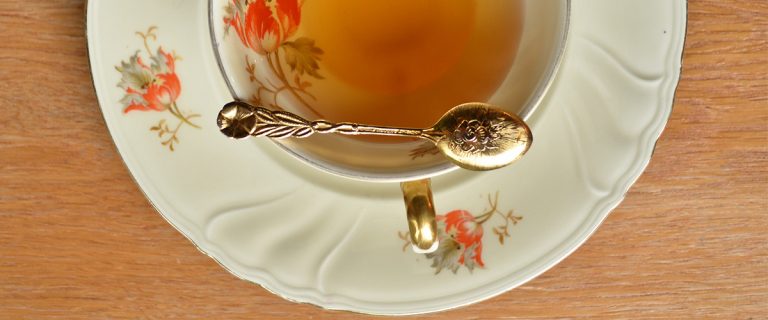Earl Grey tea caught the tea world’s eye sometime in the 1800s. Though its origins are not proven, its popularity is not. You can find this drink in restaurants and tea shops across the globe. The blend consists of a black tea base flavored with the oil from the rind of a bergamot orange. The oils from this citrus fruit and the black tea find a harmonious flavor together, which has rendered it a classic.
Although tea has been studied by medical professionals around the world, most conclusions made leave room for a fair amount of uncertainty. The Earl Grey tea is a healthy and natural drink, but it’s not a cure-all, and some of the health benefits to the drinkers are merely strong guesses, rather than confirmed and repeatable conclusions. Take confidence in knowing that all of the items below have their origins in a medical professional somewhere, but be careful not to elevate tea to a miracle panacea.
To learn more about how tea and health interact in marketing and science, read an exhaustive account on Tea vs Health: You Be the Jury and the Judge.
Earl Grey for Anxiety and Depression
While the Earl Grey tea itself is not prescribed for anxiety or depression, the presence of bergamot has triggered its fame for providing relief, because bergamot is sometimes used to treat depression. In a 2008 study, hospice patients who received massages with bergamot oil experienced less pain and less depression over time.
Another study in 2011 measured the effects of bergamot oil aromas on stressed school teachers and found that they became less stressed and less anxious.
Though both of these studies used inhaled bergamot oil rather than Earl Grey tea, the aromas produced are the same in both methods of consumption, as well as the benefits.
Heart Health
The effect of tea on heart health is still being explored across the world, and we’ve only reached the tip of the iceberg. With tea, it’s been shown that the flavonoids in tea prevent endothelial dysfunction by preventing the slow breakdown of the lining, keeping it capable of doing its job, which leads to a lower risk of heart disease.
Cancer Prevention
A study in China looked at over a thousand cancer occurrences and found that tea drinkers are at less risk for developing cancer within the digestive system. Another study by the American Journal of Clinical Nutrition revealed that prostate tumors in tea drinks often progress at a slower than average rate. The same study revealed that tea intake could reduce the risk of lung cancer in individuals who were non-smokers.
Skin Health
Antioxidants are the body’s natural way of resolving free radical activity, either by promoting their decomposition or preventing them in the first place. When the body doesn’t have the level of antioxidants it needs, it cannot contain a free radical epidemic, which over time can lead to poor skin aging and sometimes even cancer.
Flavonoids (aka polyphenols) are among the antioxidant group responsible for the elimination of free-radicals. Black tea and bergamot oil both contain high levels of these antioxidants, making Earl Grey an advocate for skin health and balanced aging.
Weight Loss
The American Journal of Clinical Nutrition announced in 2012 that tea drinkers, particularly women, are capable of losing weight more quickly than those who don’t drink any tea. Tea drinkers are also more likely to have a lower body mass index and total body fat.
Relaxant
L-theanine is an amino acid that causes tea drinkers to experience a state of calm and ease, thanks to the increase in alpha brain wave activity. Along with improving your overall mood, L-theanine also contributes to reducing depression and anxiety.
Energizer
Caffeine is a naturally occurring compound in tea, and is available in a higher concentration in black teas, including Earl Grey. This is nature’s pick-me-up, and offers improved alertness and arousal to tea drinkers.
When working together, caffeine and L-theanine are a dream team. The former supports alertness and attention while the latter brings an offering of calmness and relaxation. Which means that Earl Grey can potentially give you a calm mental state, an increased speed of perception, improved concentration and attention, reduced fatigue, and an overall improvement in performance.
Oral Hygiene
One of the lesser known benefits of Earl Grey tea is its ability to prevent oral wear and tear. The antioxidant catechin is well documented in its ability to fight oral infections. Earl Grey takes the next step with providing you fluoride, a compound found to provide protection against cavities and other forms of tooth decay. Tea stains aside, your teeth will thank you for drinking Earl Grey.
Digestive Aid
Caffeine found in tea can help relieve constipation while bergamot oil is especially useful for calming an upset stomach and relieving acid reflux and nausea. Together, they give your digestive system a boost.
Fever Relief
Bergamot oil is a tasty way to relieve yourself of a fever. By stimulating hormone secretion, bergamot oil causes your body to find hormonal balance at an elevated level, relieving you of a fever.
Cholesterol Regulation
The Journal of Functional Foods released a study in 2014 claiming that Earl Grey Tea’s bergamot oil could help the body maintain cholesterol balance.
The researchers used concentrations of bergamot oil enzymes on the proteins infamous for disrupting healthy cholesterol balance and found the oil to be very effective in lowering “bad” LDL cholesterol levels while increasing “good” HDL cholesterol levels.’
Cholesterol imbalance is one of the leading pathways to deadly heart disease, giving you yet another reason to love Earl Grey tea.
Conclusion
The ability of the Earl Grey tea to improve your life is unquestionable, but many of its supposed health benefits deserve some skepticism. It’s not a miracle drug, but rather a natural, organic beverage with some inconclusive, but rather compelling arguments for being an advocate of maintaining strong health.

Comments are closed.